Surprisingly, the Nation’s Christmas Tree is a sequoia
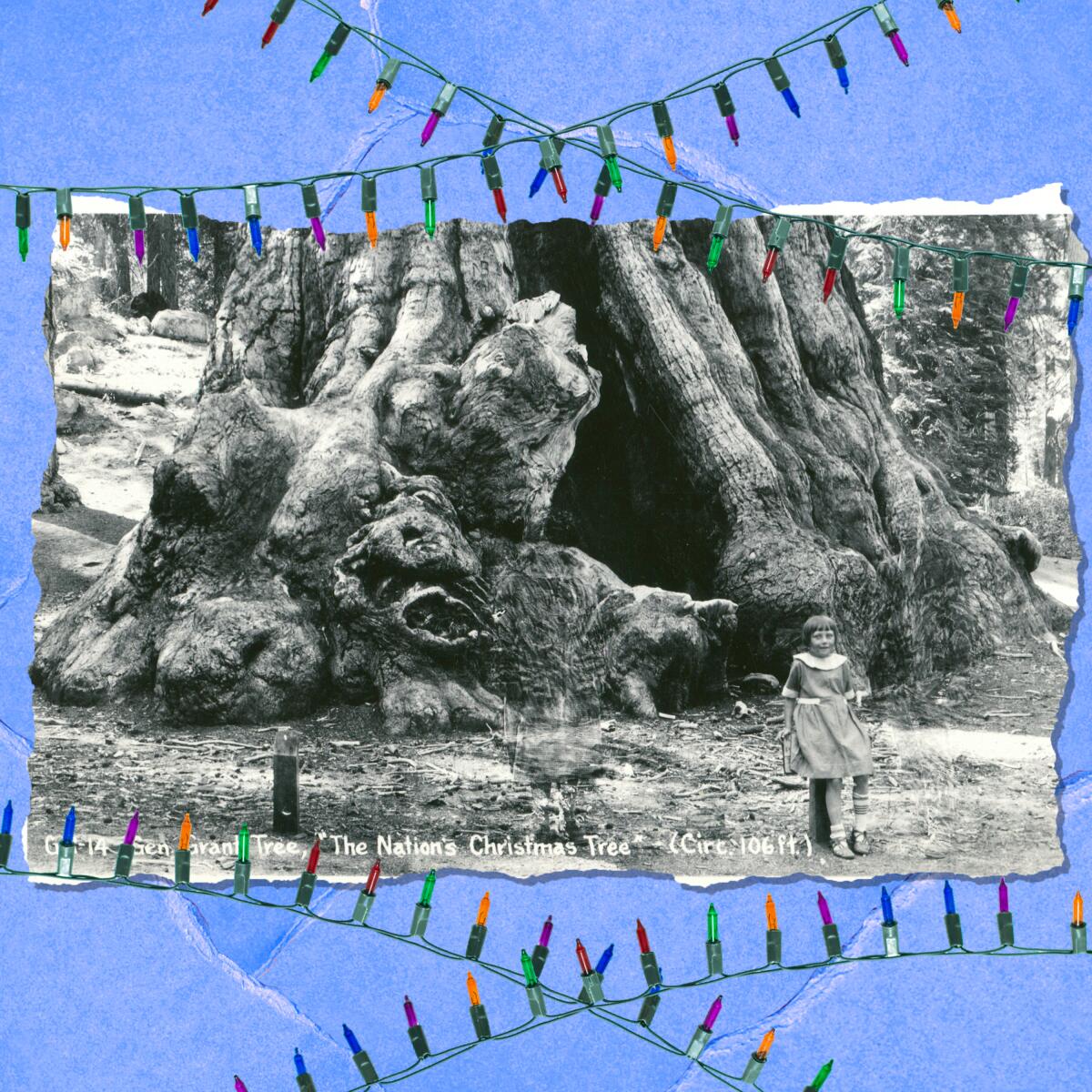
Here’s a bit of holiday trivia. Where is the Nation’s Christmas Tree? You’d be wrong if you said the White House, where the lighted and decorated national Christmas tree stands on the Ellipse, or the U.S. Capitol Christmas tree, which this year stopped at several places in California on its way to Washington, D.C., from Six Rivers National Forest in Northern California.
The tree with the big title is the General Grant in Kings Canyon National Park, one of the oldest and tallest giant sequoias in the world. I love that someone (a little girl, as the story goes) thought to recognize a redwood relative as a massive Christmas tree. The tree won the title almost a century ago after two members of the Chamber of Commerce in nearby Sanger, Calif., came upon the girl who, staring up at the 267-foot-tall tree, exclaimed: “What a lovely Christmas tree that would be,” according to the Sanger District Chamber of Commerce’s online history. After that, the chamber sent a letter to then-President Calvin Coolidge, who liked the idea and made it so on April 28, 1926. (The tree routinely lures summer tourists who may not know its Christmas connection.)
More accolades followed. In 1949, Sanger was recognized by the U.S. Post Office Department as the nation’s Christmas tree city. In 1956, the tree became a living national shrine as well as a perpetual shrine to the country’s war dead. To honor all the tree stands for, the community organizes an annual Trek to the Tree the second Sunday of December. The trek has been held just about every year since 1926 — except during World War II because of gas rationing and last year because of COVID-19 — and includes the laying of a wreath to remember the war dead.
The 2021 Trek to the Tree appears to be a go for Dec. 12 (visit the chamber’s site for more information), though getting there will take a bit more effort for Southern Californians. The KNP Complex fire that swept through in September burned more than 88,000 acres and destroyed many redwoods. It also has kept some park roads closed, including the popular Generals Highway at the southern entrance to the park. Right now, the only way to get into the park is farther north along California 180 at the Kings Canyon entrance. Still, the tree stands — and that’s saying something because firefighters worked hard to spare the old giants — and you may bask in its splendor anytime of the year.
5 things to do this week
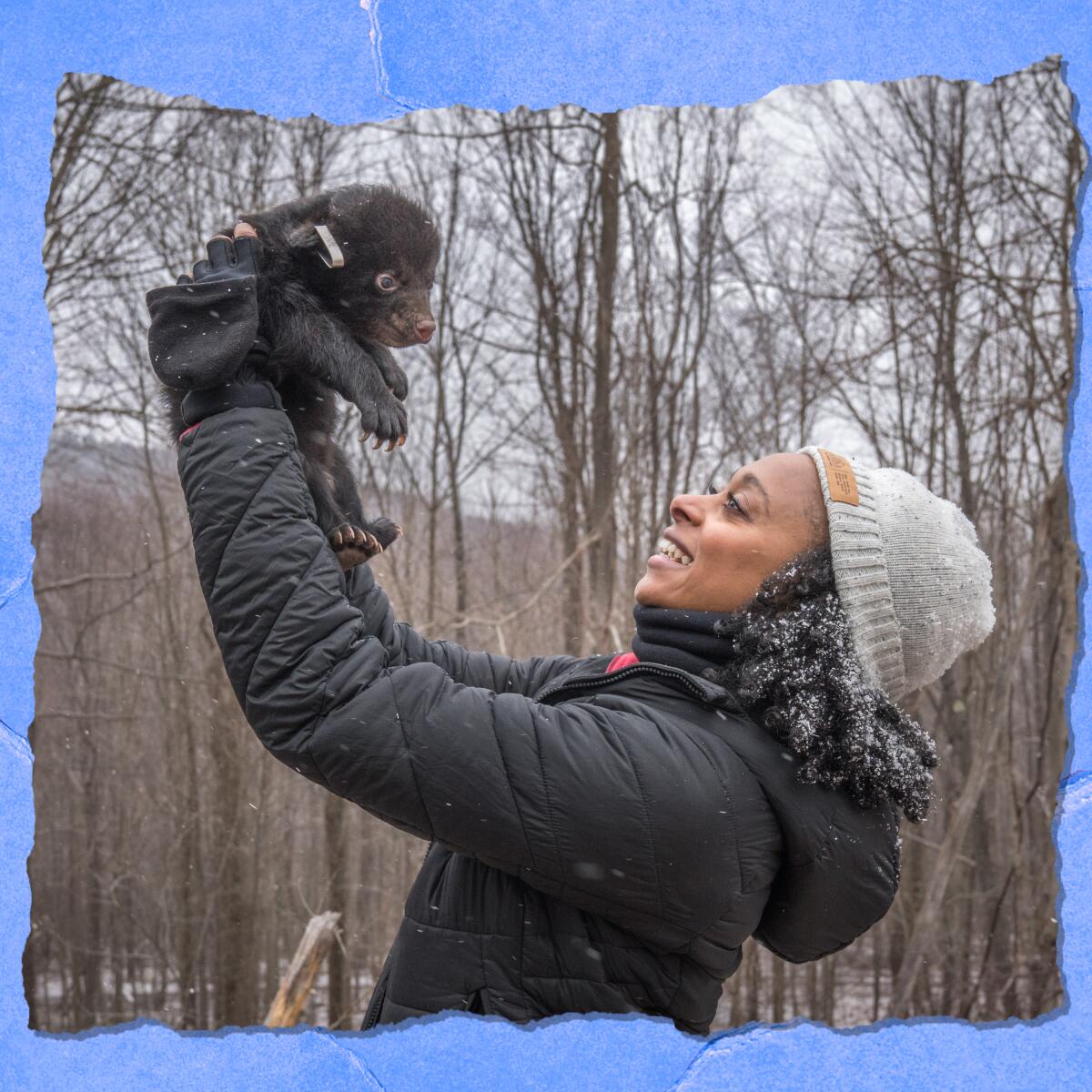
1. She once gave a bear CPR. (It lived.) Now she shares her adventures on the “Going Wild” podcast. I have to admit that I became entranced with Rae Wynn-Grant when I read she was on a team that once performed CPR on a bear. Who does that? Wynn-Grant does — and more. Her work as a large-carnivore ecologist with a background in conservation biology takes her all over the world, from the Sierra to solve the mystery of a dead bear to Kenya and the culture of the Massai people to helping protect lemurs in Madagascar. The Black scientist weaves into her podcasts very personal accounts of what happens in the outdoors and what role race often plays in the male-dominated field of science. “I have to go far for so long, distance-wise, time-wise to do the wildlife work that I do that I have these journeys, and the journey is not 100% nature-based,” she said. “A lot of it is people, being in interesting places in interesting cultures with different people. It’s not responsible for me to detach myself from my wildlife work from the fullness of the experiences I’m having.” That’s what makes her podcasts so compelling: her honesty about cultural missteps or her reaction to performing an in-field bear autopsy (awesome and gross at the same time). You’ll feel like you’re sitting around the campfire with her. Wynn-Grant lives in Santa Barbara, and the PBS Nature podcast is still in its first season (so you can catch up easily). Listen to “Going Wild” podcasts here and on Apple Podcasts and Spotify.
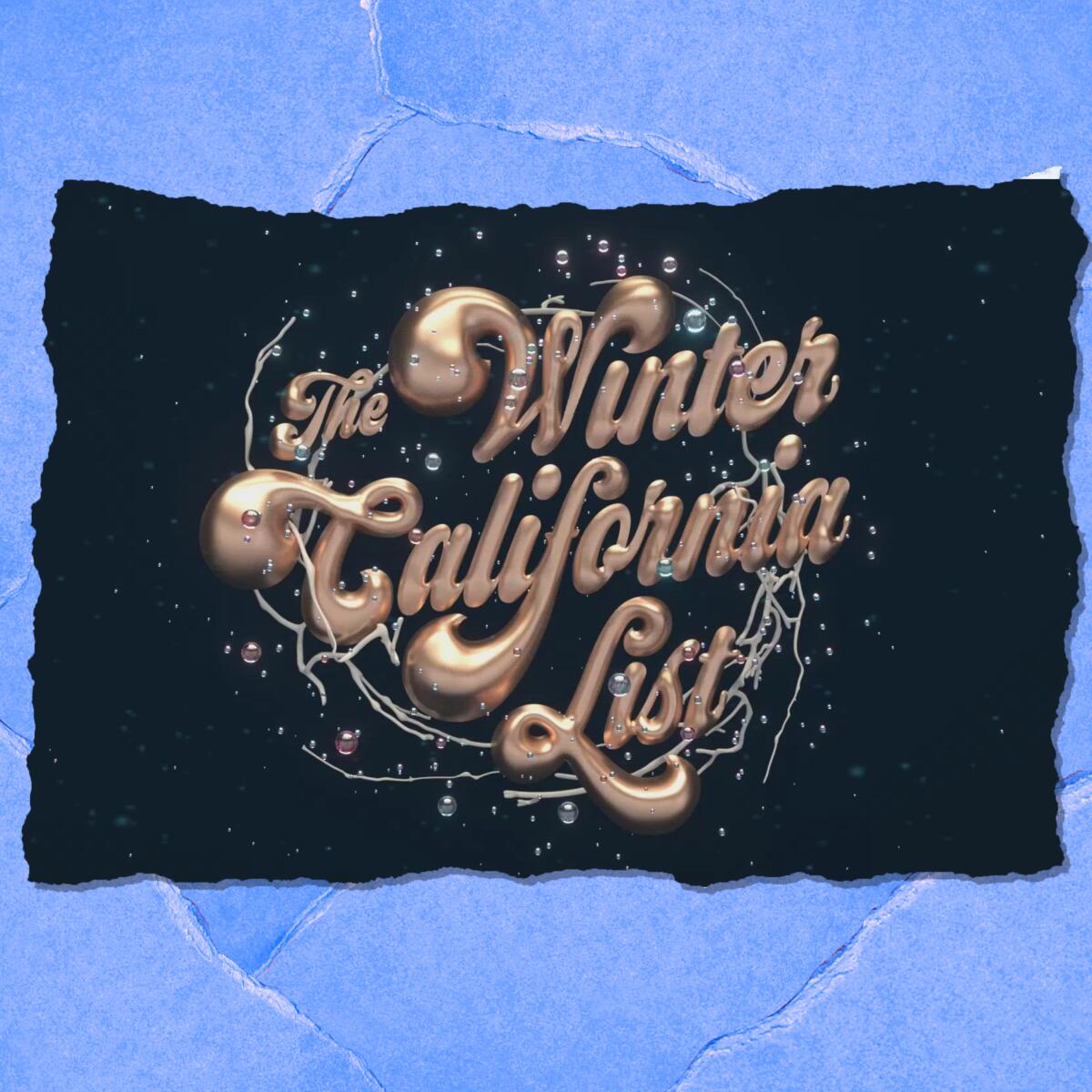
2. Take a spin on the seasonal ice-skating rink at Hotel Del Coronado. OK, outdoor ice-skating rinks aren’t really a Southern California thing — except during the winter holidays. The one at the historic Hotel Del Coronado near San Diego allows you to hit the ice while taking in views of the ocean. Who could resist? It is open until Jan. 2 and costs $35 for up to 90 minutes, skate rental included. Times staff writer Christopher Reynolds included the rink on the “40 Best California Experiences: Winter Edition.” Other outdoor adventures on the list include Indian Canyons in Palm Springs, the perfect place to see native California palms, and the Piedras Blancas Elephant Seal Rookery a little ways up the coast in Sam Simeon. Check out the full winter destination list here and more outdoor rinks in California (subscribers only; sign up here or give The Times as a gift).
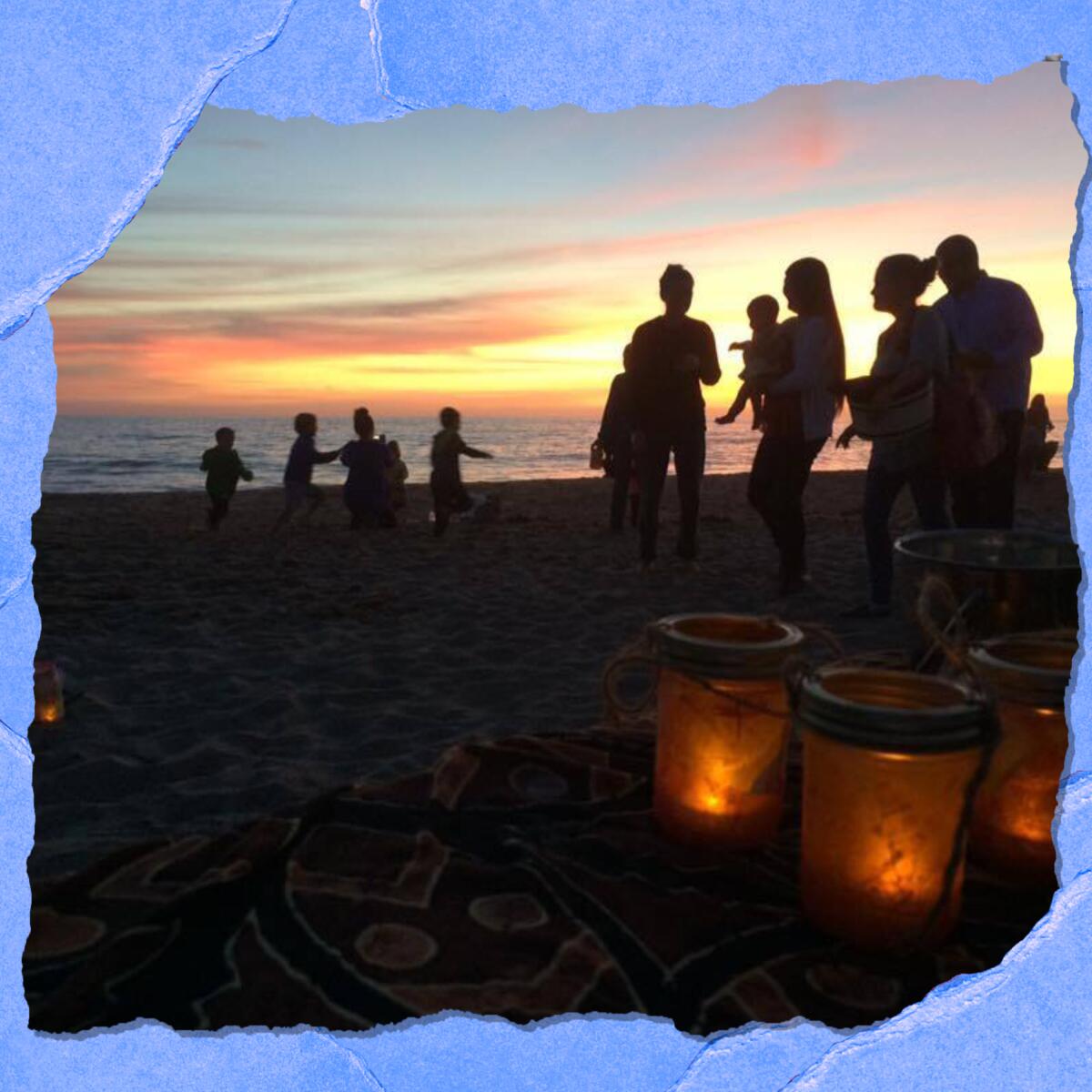
3. Take the family on a lantern-lighted walk. Here’s a holiday tradition for kids that’s worth starting. Make a lantern, and take it on a night hike. Tinkergarten, which offers outdoors classes for children, invites SoCal families to its annual Lantern Walks — and the walks are free. Learn how to make your own lantern from a glass jar or buy a $10 kit. Here are the upcoming walks (advance registration required): 4:30 p.m. Dec. 11 at Placerita Canyon State Park in Santa Clarita, 4:45 p.m. Dec. 11 at Cedar Grove Park in Tustin and 4:15 p.m. Dec. 12 at Harriett M. Wieder Regional Park in Huntington Beach. Register for walks here.
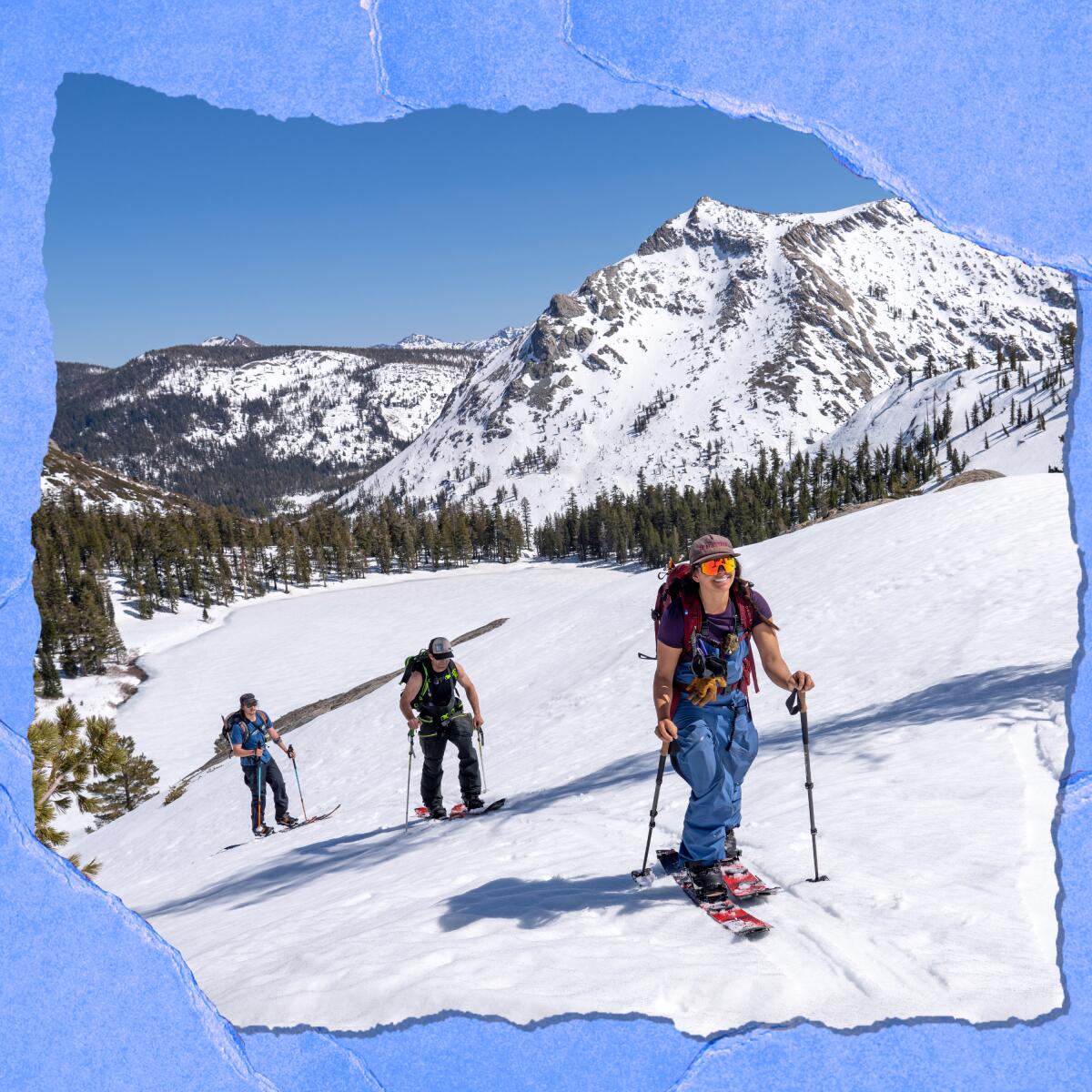
4. Know the ups and downs of back-country skiing? Here’s what you need to know. “Die old, not cold.” That’s the mantra from Take Care Tahoe, which is sponsoring a week of safety training for skiers, snowboarders, snowshoers and snowmobilers heading into the “uncontrolled, unpatrolled” back country. Tahoe Backcountry Safety Awareness Week runs Dec. 13-18. It’s a mix of virtual and in-person sessions in the Tahoe area with professional guides, skiers, search-and-rescue personnel and other experts. You’ll learn how to prepare and how to use safety equipment as well as best practices (a.k.a., back-country etiquette). Watch these safety videos to get you started. In-person events include a Safety Summit at Palisades Tahoe on Dec. 17 and a trail trash cleanup and beacon hunt Dec. 18. Learn more here.
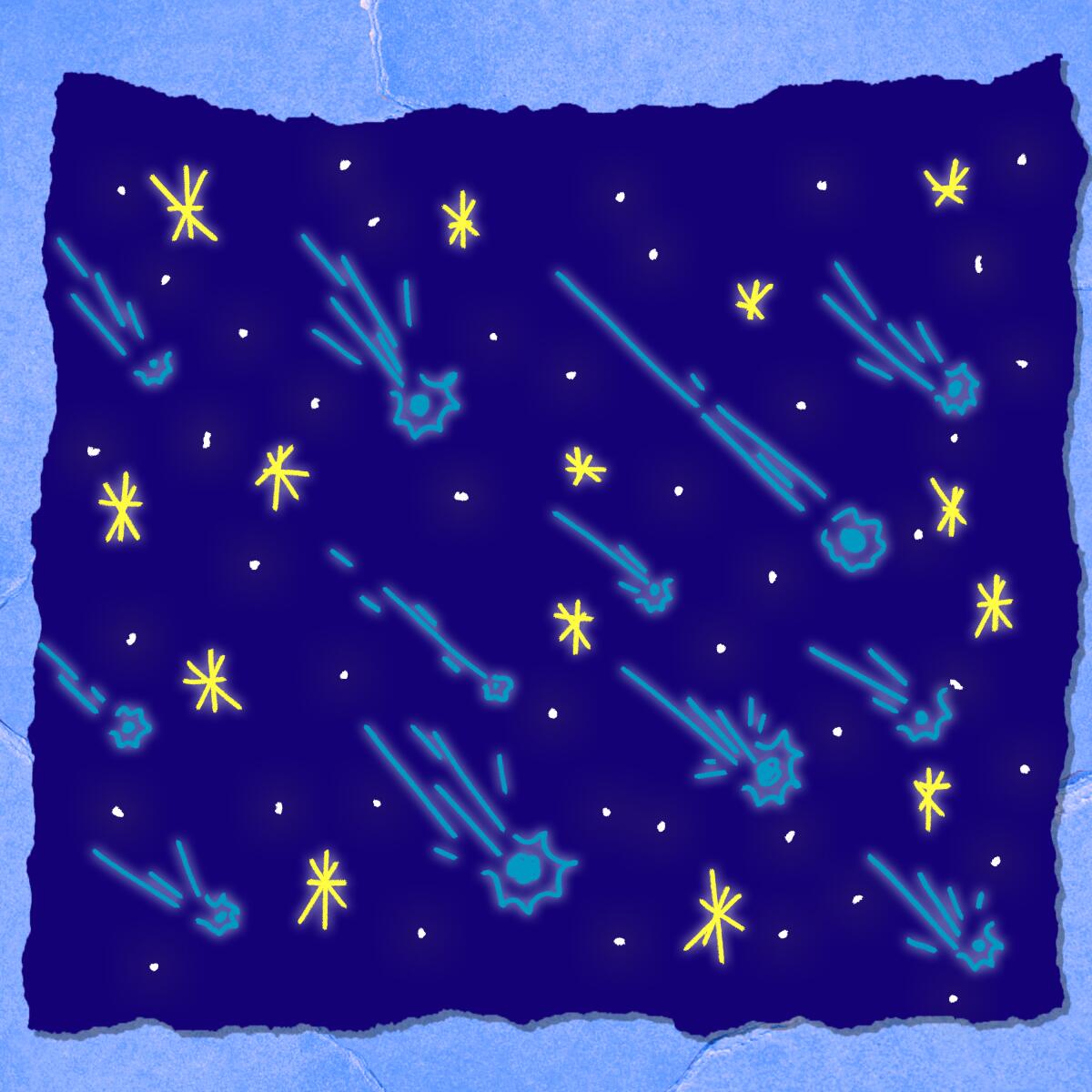
5. Keep your eye on the night sky for Comet Leonard and meteor showers. Comet Leonard is on its way. Gregory J. Leonard discovered the comet on Jan. 3. It will be closest to Earth on Dec. 12, when it may be seen with the naked eye or with binoculars, provided you are in a place where skies are dark and free of a cloud cover or fog. Look for it around 5 a.m. in the northeastern sky. Then comes the Gemini meteor shower, best seen after the moon sets at 2:45 a.m. Dec. 14. “The Geminids usually produce around 20 to 40 slow-moving meteors per hour with many bright ones,” according to the Griffith Observatory Sky Report. Lastly, the winter solstice at 7:59 a.m. Dec. 21 marks the shortest day of the year, which will be just nine hours and 53 minutes long. EarthSky tells you what to expect.
Wild things
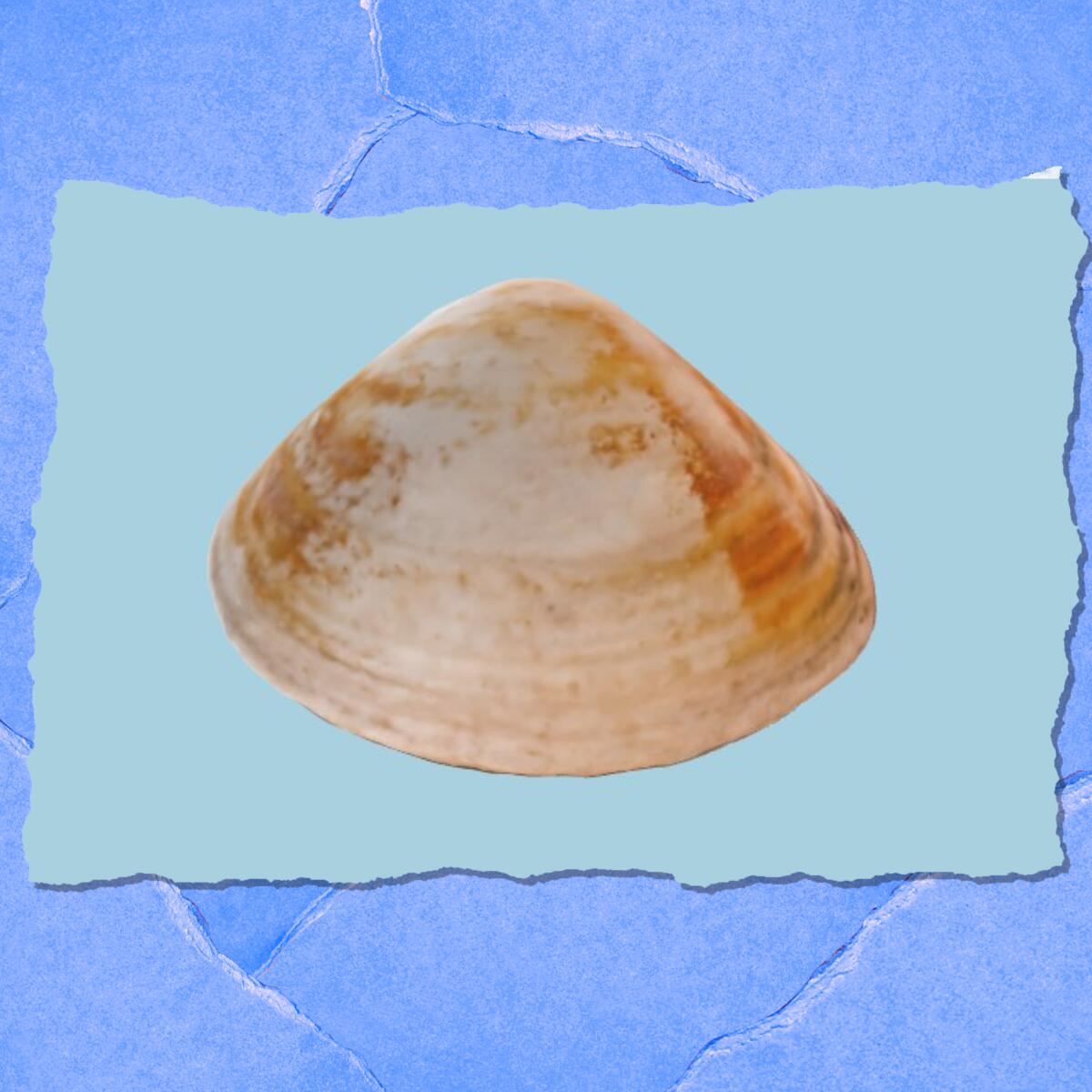
Yes, you can get sentimental about bivalves. The coastal city of Pismo Beach was once the clam capital of the world. “Until the early 1980s, Pismo clams seemed to be reasonably abundant,” Sean Greene, a Times assistant data and graphics editor, wrote. “But then something went wrong.” That something was difficult to discern; some blamed the rebound in the number of sea otters; others said humans played a role. Now a healthy population of clams is returning — and creating hope for locals who like to eat them. Read the full story of the clams’ ups and downs.
Cool stuff
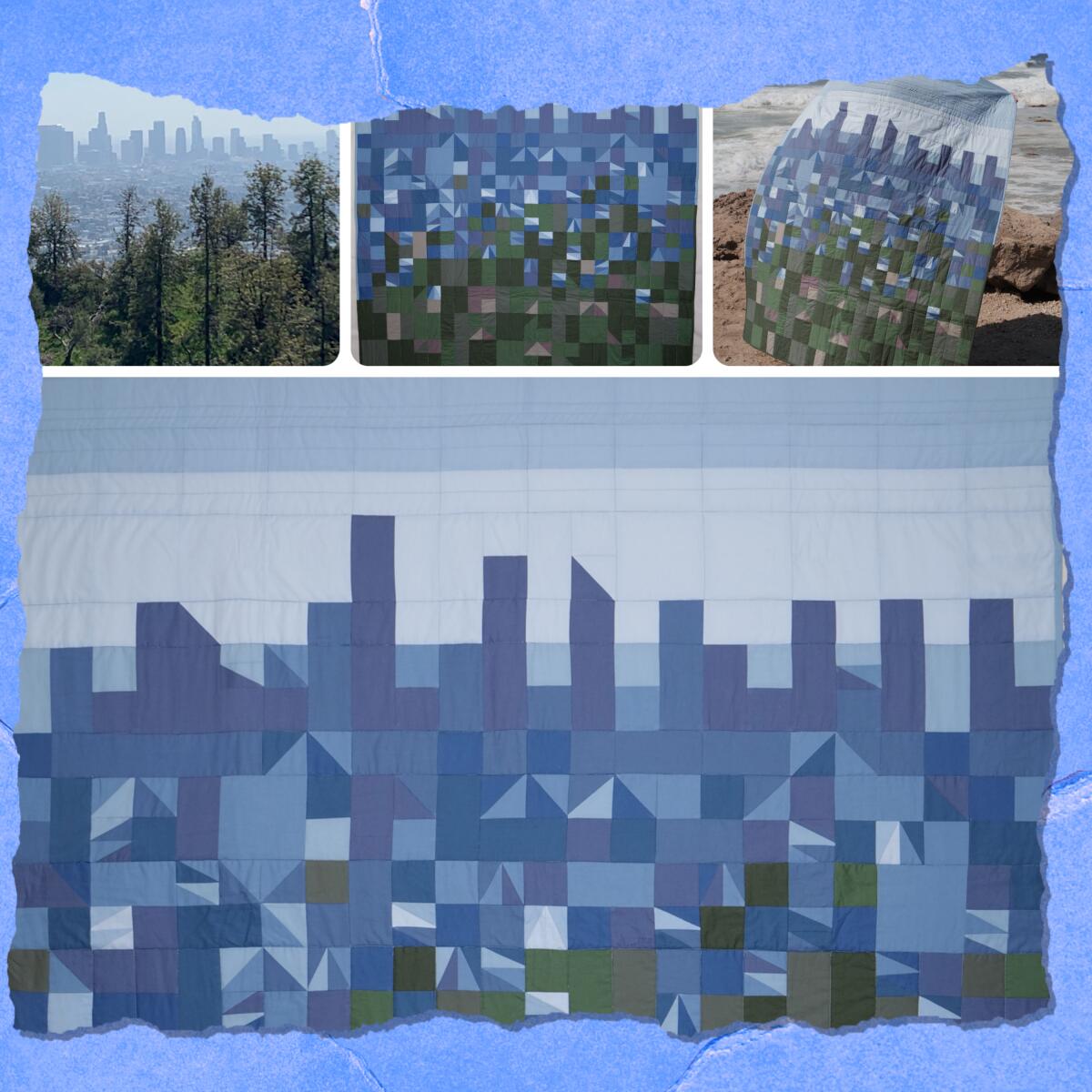
I love how people interpret Los Angeles in different ways. Designer Nicki Voss took a photo of the city from Griffith Park and transformed it into a quilt. “I’m interested in translating our experience of the outdoors into tangible indoor objects,” Voss said in an email. “How do we derive comfort from the outdoors? And specifically, can that feeling be captured in a quilt?” Voss made the quilt from 385 individually cut pieces of 100% prewashed cotton fabric. The 13 colors in the quilt, which measures 49 by 61 inches, reflect the tones in the original photograph. There is just one “Downtown Los Angeles Quilt” for sale ($1,800). Voss is working on a new quilt based on a view from Mulholland Drive, looking into the San Fernando Valley at dusk, “made up of many tiny pieces of fabric, like the nighttime lights of the Valley below.” Find more of Voss’ “landscapes of cloth” at Textilepop.
What do you think?
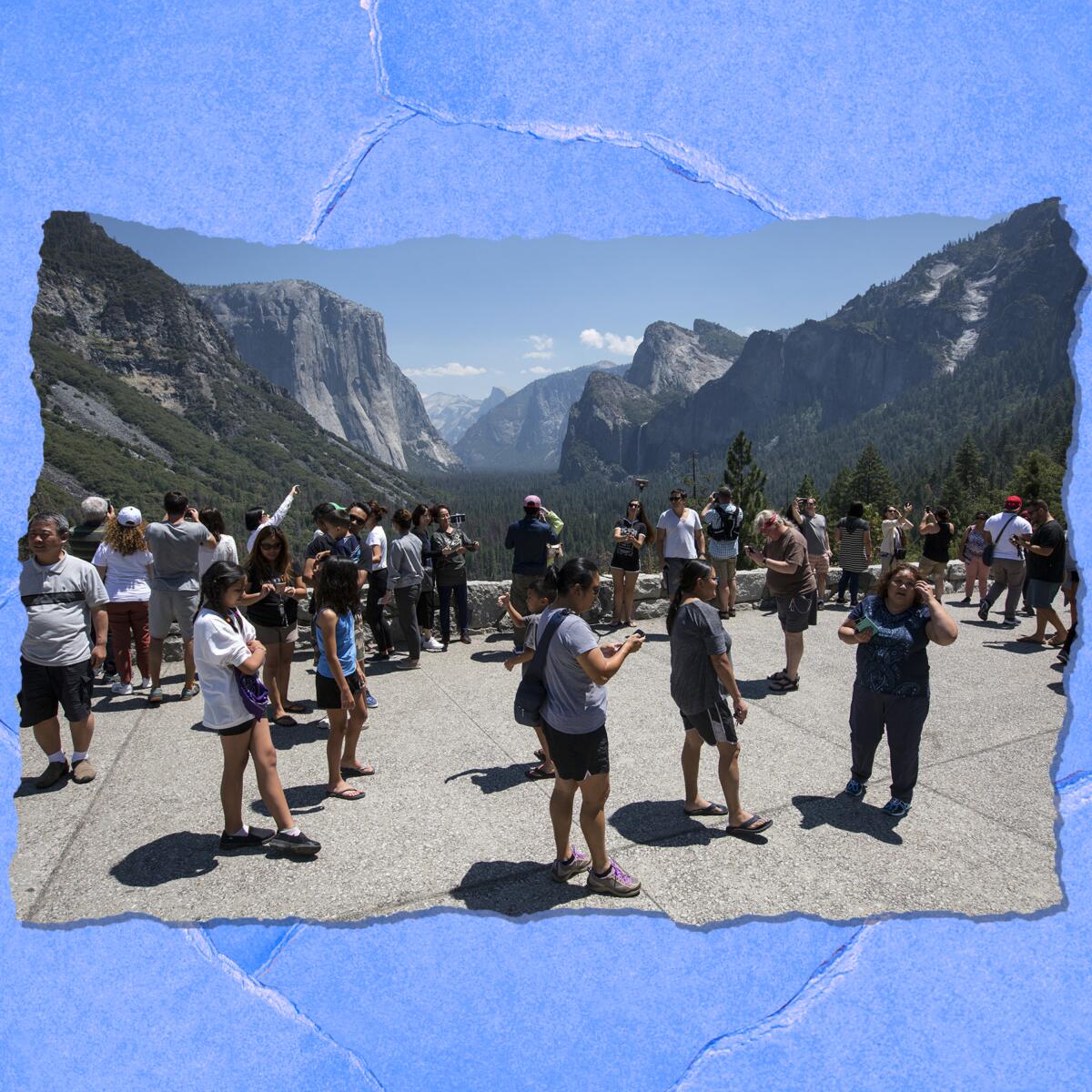
The COVID-19 pandemic has changed many things. For much of 2021, Yosemite National Park had a day-use reservation system that limited the number of visitors to 60% to 90% of 2019 attendance levels. (Currently, there are no caps on the number of visitors.) Mark Butler, longtime ranger and former park superintendent, wrote a Times op-ed piece that favors keeping the number of visitors in check — with or without a pandemic. “As park managers, we strive to protect the park and provide the best experience for visitors,” he wrote. “If a reservation system during peak seasons gets us closer to that goal, then we should make it permanent and ensure Yosemite remains a natural treasure that we can all enjoy.” I worry. A 2009 survey found that most national park visitors were white, and made recommendations on “ways to increase awareness of [National Park Service] units among diverse groups, to translate awareness into increased visits, and to create a welcoming atmosphere throughout the National Park System.” Is a reservation system (Yosemite initially was slow to roll out a Spanish-language version) really part of a more “welcoming atmosphere,” or might it create a barrier for some? What do you think? Email [email protected].
P.S.
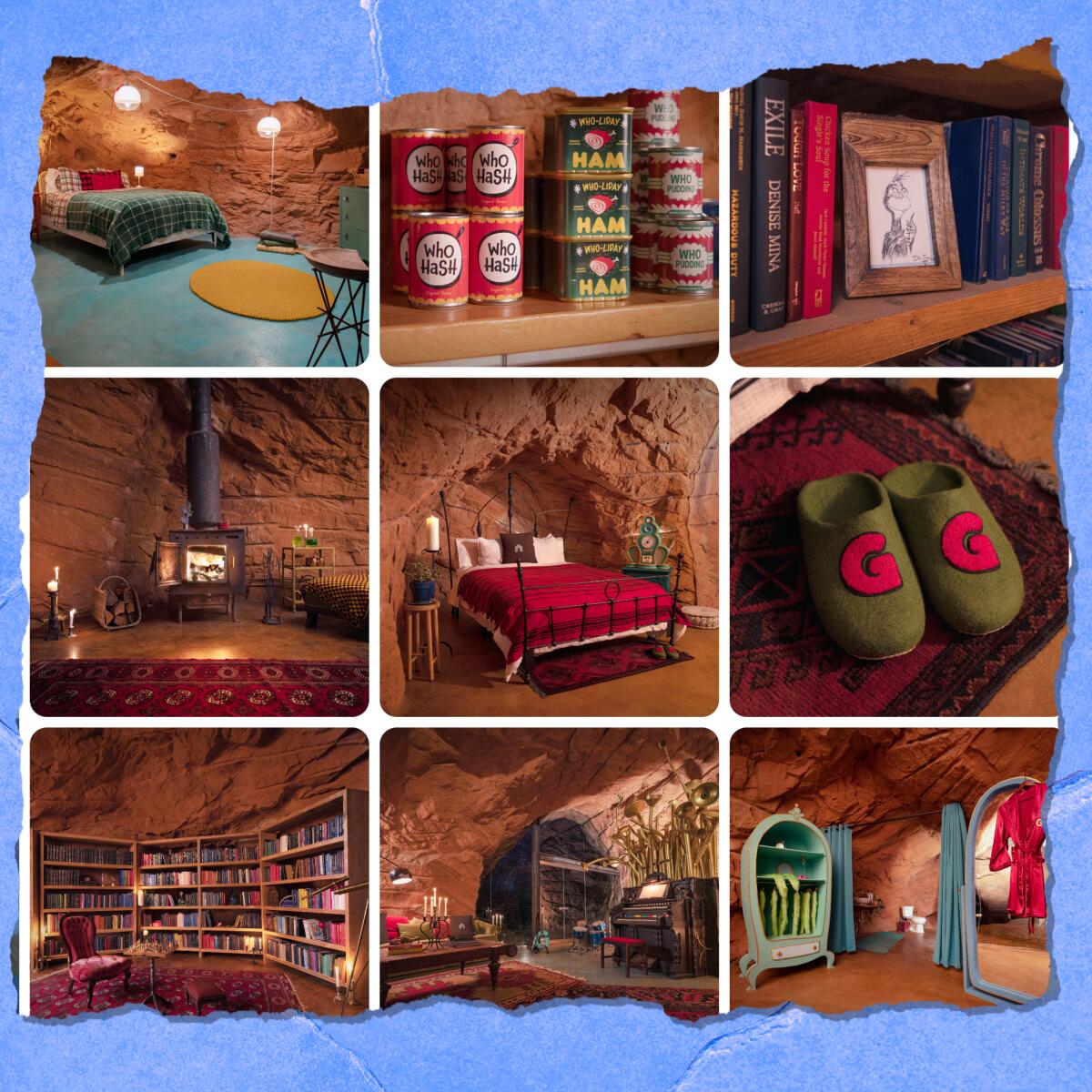
It’s that Grinchy time of year. No surprise that someone created a replica of the Grinch’s home on Mt. Crumpit, with stashes of canned roast beast and Who Hash in the kitchen. It has a main bedroom, guest bedroom and a room for Max the dog. Reservations for a December stay in the adapted cave in Boulder, Utah, sold out in six minutes on Dec. 3. The price of a night’s stay was set at $19.57, the year the Dr. Seuss book was published, plus tax. The cave-for-rent is a collab between Dr. Seuss Enterprises and vacation rental company Vacasa.
Send us your thoughts
Share anything that’s on your mind. The Wild is written for you and delivered to your inbox for free. Drop us a line at [email protected].
Click to view the web version of this newsletter and share it with others, and sign up to have it sent weekly to your inbox. I’m Mary Forgione, and I write The Wild. I’ve been exploring trails and open spaces in Southern California for four decades.

Sign up for The Wild
We’ll help you find the best places to hike, bike and run, as well as the perfect silent spots for meditation and yoga.
You may occasionally receive promotional content from the Los Angeles Times.




